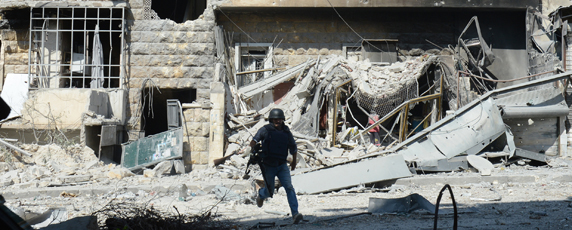Censors ban political documentary in Thailand
Bangkok, April 25, 2013–Thailand’s Ministry of Culture has banned the locally produced documentary Fah Tam Pan Din Soon (Boundary) on grounds that it could “mislead and disrupt public order,” according to news reports. The Committee to Protect Journalists condemns the censorship order and calls on ministry officials to reverse the arbitrary decision.
Attacks on the Press: Killed in 2012: A Worldwide Roundup
Killed in 2012: A Worldwide Roundup The number of journalists killed in the line of duty rose sharply in 2012, as the war in Syria, a record number of shootings in Somalia, continued violence in Pakistan, and a worrying increase in Brazilian murders contributed to a 49 percent increase in deaths from the previous…
Thai editor Somyot sentenced to 11 years in prison
New York, January 24, 2013–A Thai court sentenced news editor and political activist Somyot Prueksakakasemsuk to 11 years in prison on Wednesday for two articles the court ruled had insulted the Thai monarch, a criminal offense under the country’s strict lѐse majesté law. The Committee to Protect Journalists condemns the harsh sentencing and calls for…
Obama should address media rights in Southeast Asia
Dear President Obama: We are pleased that you will begin your second term as U.S. president with a trip to Southeast Asia. As you visit Burma, Cambodia, and Thailand from November 17 through 20 while attending the 21st Association of Southeast Asian Nations Summit and related meetings in Phnom Penh, we hope that your commitment to human rights and the fundamental right to free expression remains an important aspect of your agenda.
Computer crime laws belie Thai claim to modern society
At online discussion sites all over the world, comments are posted on the Web as soon as they are written. People argue, inform, express anger, and voice fears. Some say things in the heat of the moment that they might go on to regret. Others are elliptical and obscure. The enabling of such conversations is…
Thai webmaster conviction chills press freedom online
San Francisco, May 30, 2012–The Committee to Protect Journalists condemns today’s conviction of Chiranuch Premchaiporn, webmaster of the Prachatai discussion board, under Thailand’s Computer Crimes Act. The court’s decision, which affirms that website operators can be criminally liable for the content of user comments, chills online press freedom in the country, and leaves Thai news…
Verdict postponed in landmark Thai Internet freedom case
Earlier today, press and human rights groups from around the world heard that the decision in the case of Chiranuch “Jiew” Premchaiporn, the manager of Thai online news site Prachatai, was being delayed yet another month. Chiranuch is charged under Thailand’s Computer Crime Act for 10 counts of not deleting apparently anti-monarchy comments on Prachatai’s…

